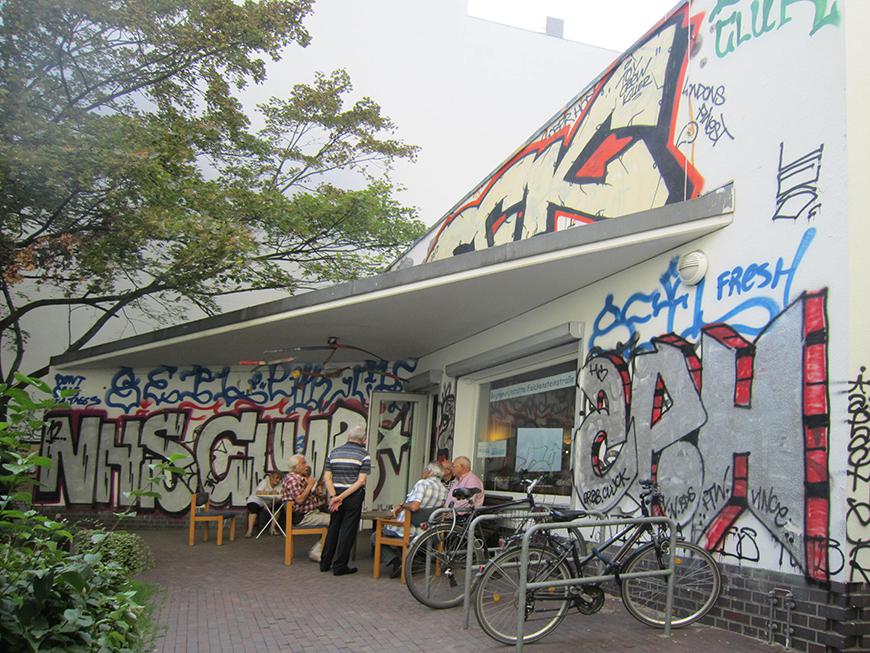
Graffiti on senior’s club designed by Alvaro Siza during Berlin-Kreuzberg’s urban renewal. photo / Esra Akcan
Migration and Discrimination (ARCH 6308, ARTH 6308, SHUM 6308) Tuesdays, 2:30–4:30 p.m.
Course Instructors: Esra Akcan (architecture) and Iftikhar Dadi (history of art)
This seminar proposes to triangulate three cities from three different countries to understand the connections between migration and discrimination. Istanbul, Lahore, and Berlin, in the context of Turkey, Pakistan, and Germany will be the foci of analysis through the perspective of urban humanities fields such as architecture, visual arts, urbanism, and literature.
This triangulation will allow for the de-essentialization of "Muslim countries" as homogenous and fixed places by observing the differences between Turkey and Pakistan. It will also enable critical examination of established perceptions of these places as being fundamentally different from the "West," by identifying diasporas in Germany, and hybrid formations and translations taking place in between the three sites. Discrimination will be discussed both as a cause and a result of migration: internal problems that compel citizens to emigrate out of their countries will be analyzed in conjunction with ideological constructs that subject them to persistent discrimination in their countries of arrival. Immigration from and through these three cities will be discussed as emblematic of the wider problem of increased contemporary displacement from South and West Asia, and North Africa.
This seminar includes a funded trip to Berlin, where fellows will pursue on-site research on the historical and current migrant and refugee settlements (such as Kreuzberg and the Tempelhof airport), unaffordable rents, and recent gentrification of immigrant areas. This seminar will be held in conjunction with the architecture option studio about Berlin taught by Werner Goehner (enrollment in the studio is not a requirement for the seminar). The seminar will also bring together scholars working in related fields to offer open lectures, as part of the AAP Critically Now series.